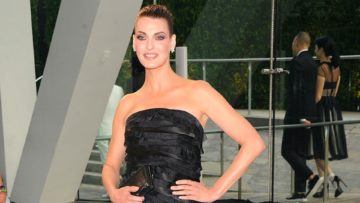James Innes Smith in The Spectator:

It’s National Inclusion Week when we all come together to ‘celebrate everyday inclusion in all its forms’. This year’s theme is ‘unity’ where ‘thousands of inclusioneers worldwide’ are being encouraged to ‘take action to be #UnitedForInclusion.’ In the bewildering world of identity politics, however, there is one group of excluded individuals you won’t be hearing much about. As a demographic, they suffer from all kinds of discrimination and yet social justice activists seem uninterested in their plight. Unlike oppressed minorities, this particular group may be in the majority and yet they garner little in the way of sympathy from anyone, barring their mums, perhaps.
As with race, gender and disability, physical attractiveness is an immutable characteristic born out of biological happenstance; unless we decide to go under the knife there is very little we can do about a wonky nose, droopy shoulders or a weak chin. A study has found that employers tend to assume that attractive people make better workers. The so-called Halo Effect implies that we subconsciously assume a person’s appearance is an accurate reflection of their overall character; we say they have ‘kind eyes’ or a ‘charming smile’ as though looks were a window into the soul. Is it any wonder then that those blessed with ‘good looks’ – even the term sounds supremacist – are viewed in a more favourable light?
According to evolutionary biologists, attractiveness may be linked to healthy genes, which is why we are so drawn to it. Anyone who has signed up to a dating site will know how brutally shallow the whole business of pairing off can be – looks are the first thing we notice and the main reason we flick either left or right. Imagine if we were as openly hostile towards people because of their skin colour.
Nor is beauty really in the eye of the beholder; our view of attractiveness tends to be exceedingly narrow, ensuring that only a few gain from the privilege. Linda Evangelista has learnt to her cost what happens when that privilege is taken away. The ex supermodel has spent the last five years living as a recluse after a cosmetic procedure left her face permanently disfigured and unrecognisable. No longer able to work and afraid to leave her house Evangelista claims the experience sent her ‘into a cycle of deep depression, profound sadness and the lowest depths of self-loathing.’ The model intends to sue the company responsible so that she can move ‘forward to rid myself of my shame.’ Losing her most prized asset has come at a heavy price.
More here.